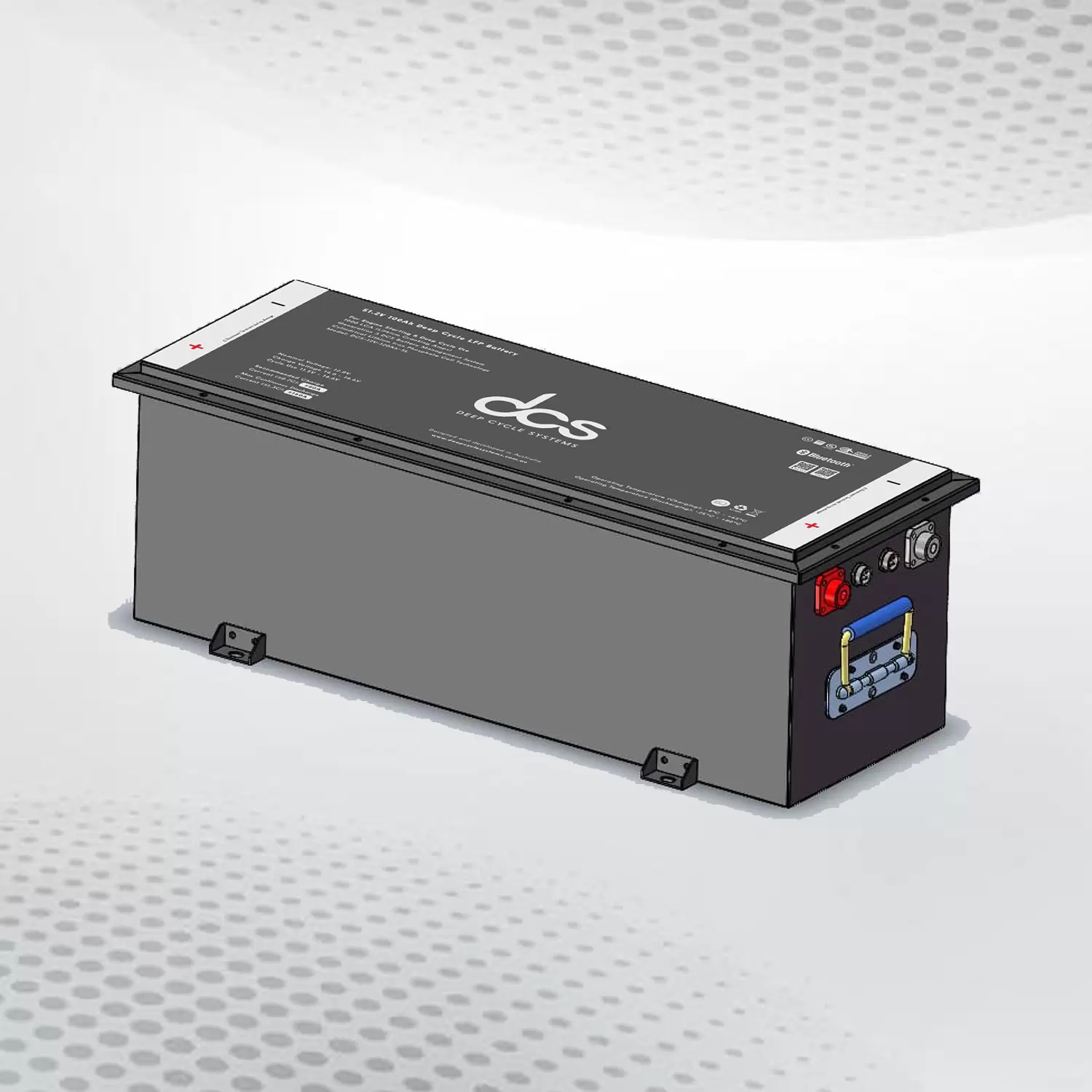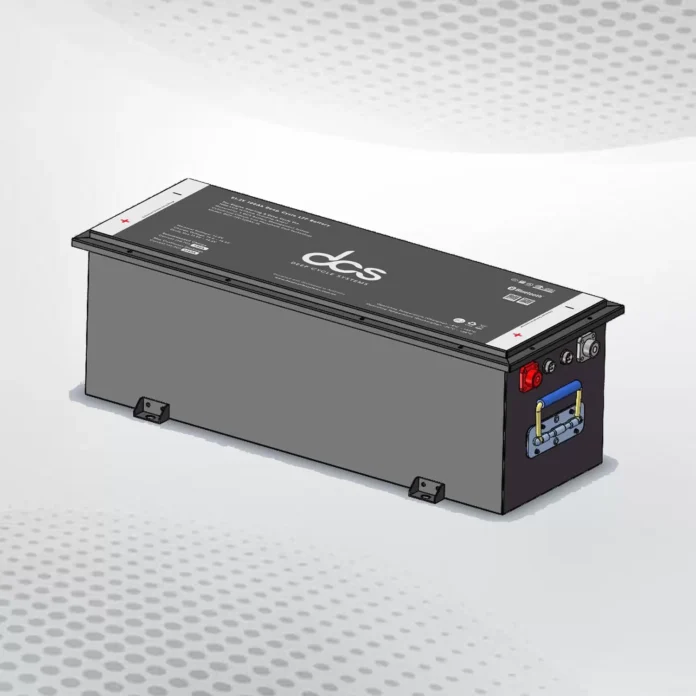In today’s world, the demand for more sustainable and energy-efficient transportation options is higher than ever before. Electric vehicles have emerged as a viable solution to reduce carbon emissions and combat climate change. One of the key components driving the performance of electric vehicles is the 48V Li battery. These batteries are reshaping the way we think about electric vehicles and are paving the way for a greener future.
Understanding the Basics of 48V Li Batteries
48V Li batteries fall into the category of lithium-ion batteries that deliver a voltage of 48 volts. This specification is particularly significant in the realm of electric vehicles, where such batteries contribute to the operational efficiency and power of the motor alongside other crucial components.
Characterised by their superior energy density, these batteries boast a design that is both lightweight and conducive to long-term usage. The designation of ’48V’ specifically indicates the voltage level provided by the battery, a critical factor for the smooth functioning and enhanced capabilities of electric vehicles.
With attributes tailored for performance and durability, 48V Li batteries emerge as a cornerstone in the development and optimisation of electric vehicle technology, underscoring their pivotal role in the advancement of sustainable transportation solutions.
Advantages of 48V Li Batteries in Electric Vehicles
48V Li batteries stand at the forefront of electric vehicle technology, offering a host of advantages that contribute to enhanced vehicular performance. Their high power output, combined with a lightweight and compact form factor, ensures electric vehicles benefit from superior acceleration and overall better performance metrics when compared to their petrol-powered counterparts.
Furthermore, the adoption of 48V Li batteries in electric vehicles translates into a significant reduction in greenhouse gas emissions, propelling the automotive industry towards a more sustainable and eco-friendly future. This amalgamation of benefits underscores the pivotal role 48V Li batteries play in the evolution and improvement of electric vehicle technology.
Economic Benefits Of Adopting 48V Li Batteries
Adopting 48V Li batteries offers tangible economic advantages for owners of electric vehicles. These batteries present lower maintenance requirements compared to their lead-acid counterparts, contributing to a decrease in ongoing care costs. Their superior energy efficiency not only enhances vehicle performance but also leads to savings on energy costs over time. Furthermore, as the market for electric vehicles expands, the cost of producing 48V Li batteries is gradually diminishing.
This trend makes electric vehicles equipped with these batteries increasingly accessible to a broader consumer base, facilitating a shift towards more cost-effective and sustainable transportation options. Importantly, the longevity and durability of 48V Li batteries extend their service life, further maximising the return on investment for users.
Comparing 48V Li Batteries with Other Battery Technologies
When placed side by side with alternative battery technologies, 48V Li batteries exhibit distinct advantages that set them apart. Unlike lead-acid batteries, which carry a heavier weight and exhibit lesser energy efficiency, 48V Li batteries provide a remarkable balance between weight and performance. Moreover, they surpass nickel-metal hydride batteries in terms of energy density, offering more power in a more compact package.
This unique combination of high energy density, rapid charging capabilities, and a lighter form factor positions 48V Li batteries as the preferred choice for electric vehicles, offering a blend of efficiency and reliability unmatched by other battery types. Their superiority in these aspects makes them indispensable in advancing electric vehicle technology without necessitating the replication of benefits mentioned in the preceding sections.
Environmental Impact of Switching To 48V Li Batteries
Transitioning to 48V Li batteries in electric vehicles marks a significant stride towards diminishing the environmental footprint associated with personal and mass transportation. These batteries offer a higher energy efficiency compared to conventional petrol-powered vehicles, which, in turn, reduces the consumption of fossil fuels and lowers the emission of harmful pollutants into the atmosphere.
The production and recycling processes of lithium-ion batteries also reflect a move towards more eco-friendly practices, as advancements in technology are steadily improving the recyclability of these components.
Furthermore, the utilisation of 48V Li batteries supports the integration of renewable energy sources, such as solar or wind power, into the charging infrastructure. This synergy between electric vehicles powered by 48V Li batteries and renewable energy sources exemplifies a transformative approach to reducing the environmental impact of the transportation sector, fostering a cleaner, more sustainable future.
Role of 48 volt lithium ion battery In Renewable Energy Systems
The integration of 48 volt lithium ion battery into renewable energy systems exemplifies a leap towards enhancing efficiency and reliability in green power solutions. These batteries serve as a critical component in managing and storing energy derived from renewable sources, ensuring a steady and dependable supply.
Energy Storage and Stability
48V Li batteries excel in storing energy generated from renewable sources, such as solar panels or wind turbines, effectively stabilising the grid during variable production periods.
Facilitating Off-Grid Solutions
For remote locations, these batteries provide a viable option for storing renewable energy, enabling off-grid systems to deliver continuous power without the need for traditional grid infrastructure.
Enhancing Grid Resilience
In grid-tied systems, 48V Li batteries contribute to grid resilience, offering backup power during outages and peak demand periods, thus reducing reliance on conventional power plants.
Supporting Microgrid Configurations
They are pivotal in microgrid setups, where energy management is crucial. By storing excess energy, these batteries ensure a balanced supply, catering to the needs of small communities or isolated areas.
Optimising Energy Usage
In conjunction with smart energy management systems, 48V Li batteries can optimise energy usage, ensuring renewable energy is utilised efficiently, reducing waste and maximising cost savings.
Maintenance Tips for 48V Li Batteries
Ensuring the longevity and optimal performance of 48V Li batteries involves adhering to several maintenance practices. Conducting routine inspections of the battery’s charge levels, ambient temperature, and voltage is crucial for identifying potential issues early on.
To avoid compromising the battery’s integrity, one should steer clear of exposing it to extreme temperature conditions. Additionally, it is imperative to refrain from overcharging or allowing the battery to discharge completely, as this can adversely affect its efficiency and overall lifespan.
Implementing these maintenance tips can significantly contribute to the reliable operation of 48V Li batteries. Equally, frequent monitoring for any visual damages, such as corrosion or leaks, is paramount. It’s also worth bearing in mind that every few months, thoroughly cleaning the battery connections can prevent build-up and maintain efficient energy transfer.
The Future of 48V Li Batteries in Transportation
As electric vehicles gain popularity, the role of 48V Li batteries within this domain is anticipated to expand significantly. With continuous research and development efforts focused on enhancing battery technology, these batteries are set to offer even greater efficiency and performance.
The evolution of battery technology promises lighter, more powerful, and longer-lasting batteries, which in turn could lead to a reduction in vehicle weight, further extending the driving range. Additionally, the infrastructure to support electric vehicles, including charging stations and maintenance facilities, is expected to evolve, ensuring these batteries play a central role in the transportation industry’s shift towards sustainability.
The relentless pursuit of technological advancements indicates a future where electric vehicles powered by 48V Li batteries become an increasingly common sight on roads, contributing to a substantial decrease in carbon emissions and fostering a cleaner environment.
Understanding the Safety Features Of 48V Li Batteries
Safety remains a paramount concern with the usage of 48V Li batteries in electric vehicles. These power sources are equipped with various safety mechanisms to mitigate risks and ensure secure operation. Among these, thermal management systems play a crucial role in maintaining the battery’s temperature within a safe range, preventing overheating that could lead to damage or failure.
Overcharge protection circuits are designed to halt the charging process once the battery reaches full capacity, thus avoiding potential overcharging scenarios that could compromise battery health. Additionally, short-circuit prevention mechanisms are integral to these batteries, offering a safeguard against electrical faults that could otherwise pose a significant safety hazard.
These features collectively ensure that 48V Li batteries operate within their optimal safety parameters, offering reassurance to electric vehicle operators about the reliability and safety of their power source.
How To Choose the Li ion golf cart battery For Your Needs?
Selecting the appropriate Li ion golf cart battery necessitates an understanding of several critical aspects tailored to align with the demands of the electric vehicle in question. Key considerations include the battery’s energy density and power output, which directly influence the vehicle’s performance capabilities.
The expected lifespan of the battery also holds considerable weight, as it impacts long-term usability and cost-effectiveness. Prospective buyers should carefully evaluate these parameters against their specific requirements, whether it’s for daily commuting or more intensive usage.
It is advisable to seek advice from experts in the field, such as manufacturers or seasoned technicians, who can provide deeper insights into the compatibility and advantages of different 48 V Li battery models. Engaging with professionals can aid in navigating the complexities of battery technology, ensuring an informed decision is made that best suits the individual’s needs.
Innovations in 48 V Li Battery Technology
The landscape of 48 V Li battery technology is undergoing rapid transformation thanks to materials science and engineering breakthroughs. Developments such as solid-state electrolytes offer increased safety and energy density, propelling the performance of electric vehicles to new heights. Meanwhile, the introduction of silicon anodes is set to boost the capacity and longevity of these batteries significantly.
Advanced thermal management systems are also being perfected, ensuring batteries operate efficiently across a broader range of temperatures. These innovations collectively herald a future where electric vehicles are more powerful, reliable, and versatile, showcasing the dynamic progression of 48 V Li battery technology.
FAQs
What Makes 48V Li Batteries Suitable For Electric Vehicles?
48V Li batteries offer a high energy density and power output in a compact size, making them ideal for electric vehicles. Their rapid charging capabilities and extended lifespan enhance vehicle performance and usability.
How do 48 volt lithium ion battery contribute To Environmental Sustainability?
By powering electric vehicles, 48 volt lithium ion battery help reduce reliance on fossil fuels and lower carbon emissions. Their efficiency and compatibility with renewable energy sources further bolster their eco-friendly credentials.
Are 48V Li Batteries More Expensive Than Traditional Batteries?
Initially, 48V Li batteries may have a higher upfront cost compared to traditional lead-acid batteries. However, their longer lifespan and lower maintenance costs can make them more cost-effective in the long run.
Can 48V Li Batteries Be Used In All Types Of Electric Vehicles?
While 48V Li batteries are versatile and suitable for a wide range of electric vehicles, it is crucial to select a battery that matches the specific requirements and specifications of the vehicle for optimal performance.
What Are The Main Safety Features Of 48V Li Batteries?
These batteries are equipped with thermal management systems, overcharge protection circuits, and short-circuit prevention mechanisms to ensure safe operation and mitigate the risks of overheating or electrical faults.
Conclusion
In wrapping up, 48V Li batteries set a new benchmark in electric vehicle technology and sustainable transit methods. These power sources, with their myriad advantages ranging from superior performance to economic and ecological gains, are steering the automotive industry towards a brighter, cleaner future. With ongoing advancements in battery technology fuelling further innovations, the potential of 48V Li batteries within transportation is boundless. The shift towards these batteries is a significant step in realising a more eco-friendly and efficient future for global mobility.
| Other Good Articles to Read |
| blogs rain |
| Cme Blog Spot |
| Garcias Blogs |
| Yyc Blogs |
| Guiade Blogs |
| Blogs-Hunt |
| Impact-Blog |
| Smarty Blogs |
| Ed Blog |
| Mo Blogs |
| Blogs Em |
| blogs t |
| Related Business Listings |
| Contact Directory |
| Local Business Profiles |

